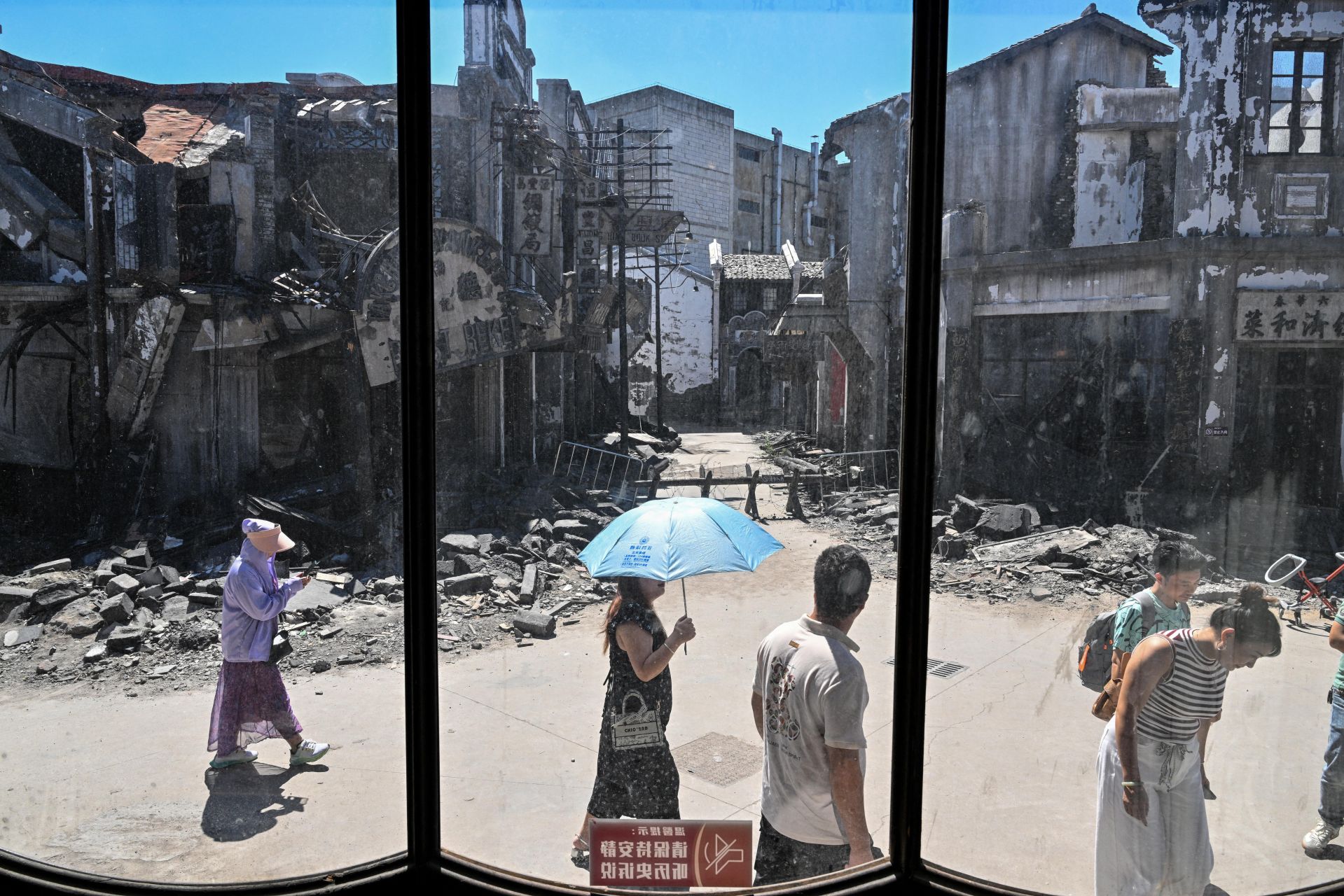
The film Dead to Rights brings the horrors of the Nanjing Massacre (1937-38) to the screen, offering a vivid portrayal of the atrocities committed by the Japanese army in China. Released just ahead of the 80th anniversary of China’s victory over Japan, the movie has sparked widespread debate and reflection on this dark chapter in history. The film captures not only the massacre's brutality but also China’s lasting trauma.
The film Dead to Rights, which recounts the Nanjing Massacre of 1937-38, takes viewers through the atrocities committed by the Japanese army in China. Released just before the 80th anniversary of China's victory over Japan, the film has become a powerful focal point of national remembrance, attracting large crowds to its filming set, now a tourist attraction. While the vivid set at the Nanjing Photo Studio offers a seemingly lighthearted atmosphere, the story it tells is anything but.
Set during the six weeks of brutal killings, rapes, and looting that took place in Nanjing, the then capital of China, the film does not shy away from depicting the raw violence and suffering endured by countless victims. Official Chinese estimates put the death toll at around 300,000, although the accuracy of this figure remains a subject of debate, with some right-wing Japanese groups still denying the massacre.
With a star-studded cast and gripping storytelling, Dead to Rights has topped the box office since its release. The film centers on a group of residents trapped inside a photo studio, forced to develop images of Japanese war crimes as they unfold outside. This chilling portrayal of human suffering has stirred deep emotions in viewers and reignited intense debates about the past.
The filming location, in a vast park on the outskirts of Shanghai, is now open to the public. Tourists, students, and curious onlookers flock to the set to take photos in front of the massive bullet-riddled mural of Chiang Kai-shek, who was then leading China. Some visitors, such as a man who traveled nearly 2,000 kilometers with his young son, recount how the boy, who had seen the film, eagerly posed with a Chinese flag, embodying national pride.
For others, the pain is still raw. "It’s a deep inner sorrow, a profound hatred," says He, a woman who reflects on her feelings toward Japan. "You cannot erase history, no matter what happens."
According to Hong Kong's South China Morning Post, the film is described as "extraordinarily powerful," noting that certain violent scenes were intentionally crafted to stir anti-Japanese sentiment. This film is just one of several summer releases focused on China’s wartime history, a reminder of the millions of lives lost in the conflict.
Dead to Rights carries the weight of an entire nation's collective memory: "No Chinese person will ever forget," reads the film's poster. For Jiang Xiang, a 37-year-old visitor, the goal is not to fuel hatred but to restore the historical truth. "These films don’t represent hatred," he says. "They are about restoring history."
The massacre’s death toll, often estimated at 300,000 by the Chinese, remains contested. Some ultra-conservative Japanese figures have even denied the event, despite overwhelming evidence. Yet, for most, films like Dead to Rights are a powerful tool in preserving the painful memory of what happened.
The guestbook at the photo studio's set is filled with patriotic comments, some bordering on vitriol towards Japan. "Japan is the stupidest country in the world," reads one note, written in childish handwriting. Nearly all parents interviewed by AFP mention that their children have seen the film, despite China not having a film classification system. It’s common for young viewers to watch content considered excessively violent in other countries.
"Look, that’s where the head hung in the movie," exclaims one child, pointing excitedly at a wooden pole. For tourist He, films about war "teach our children how our ancestors fought for us." She adds, "The goal is to help children understand history, not incite hatred."
Li Xinyi, a middle school student, admits that she finds the Japanese "unpleasant," but insists, "Even though they did us great harm, we must respect them now. We need to think about peace."
By Rebecca BAILEY / AFP



Comments